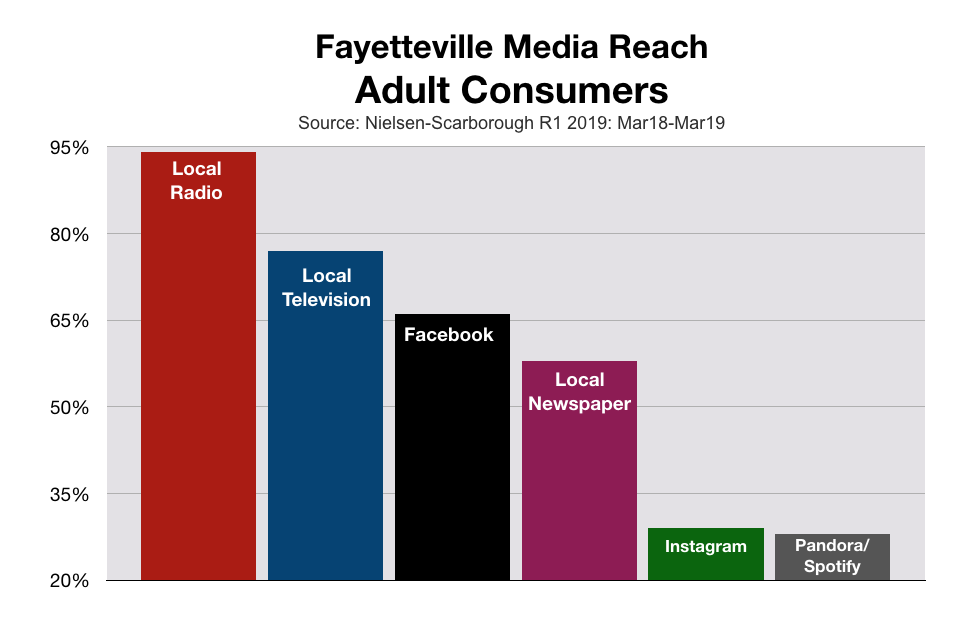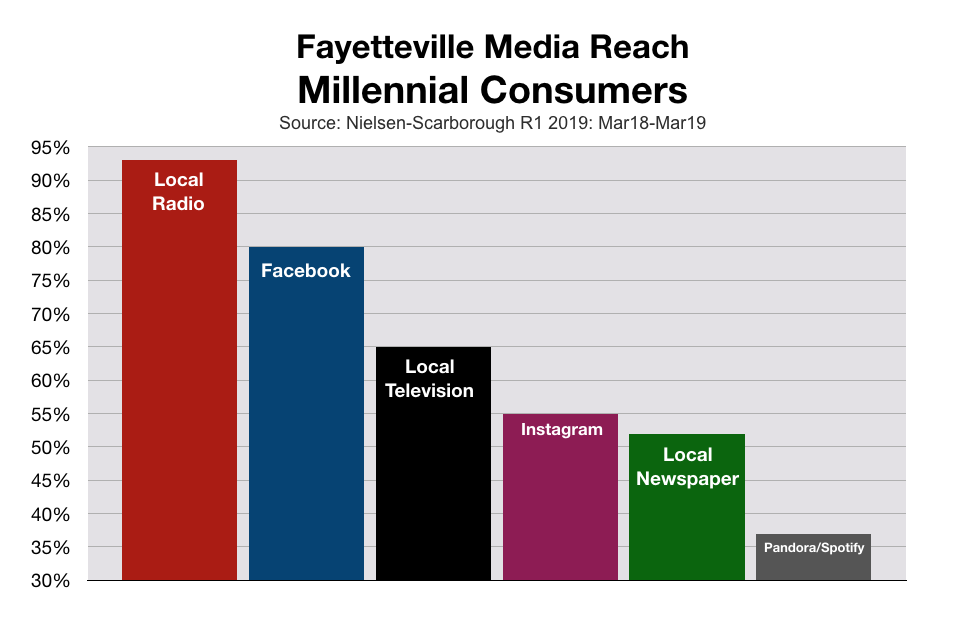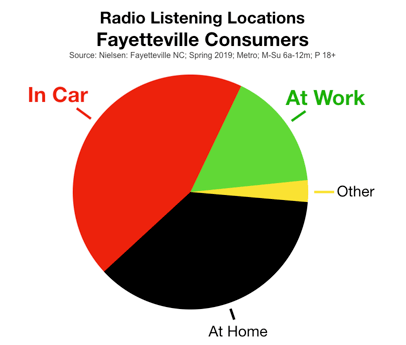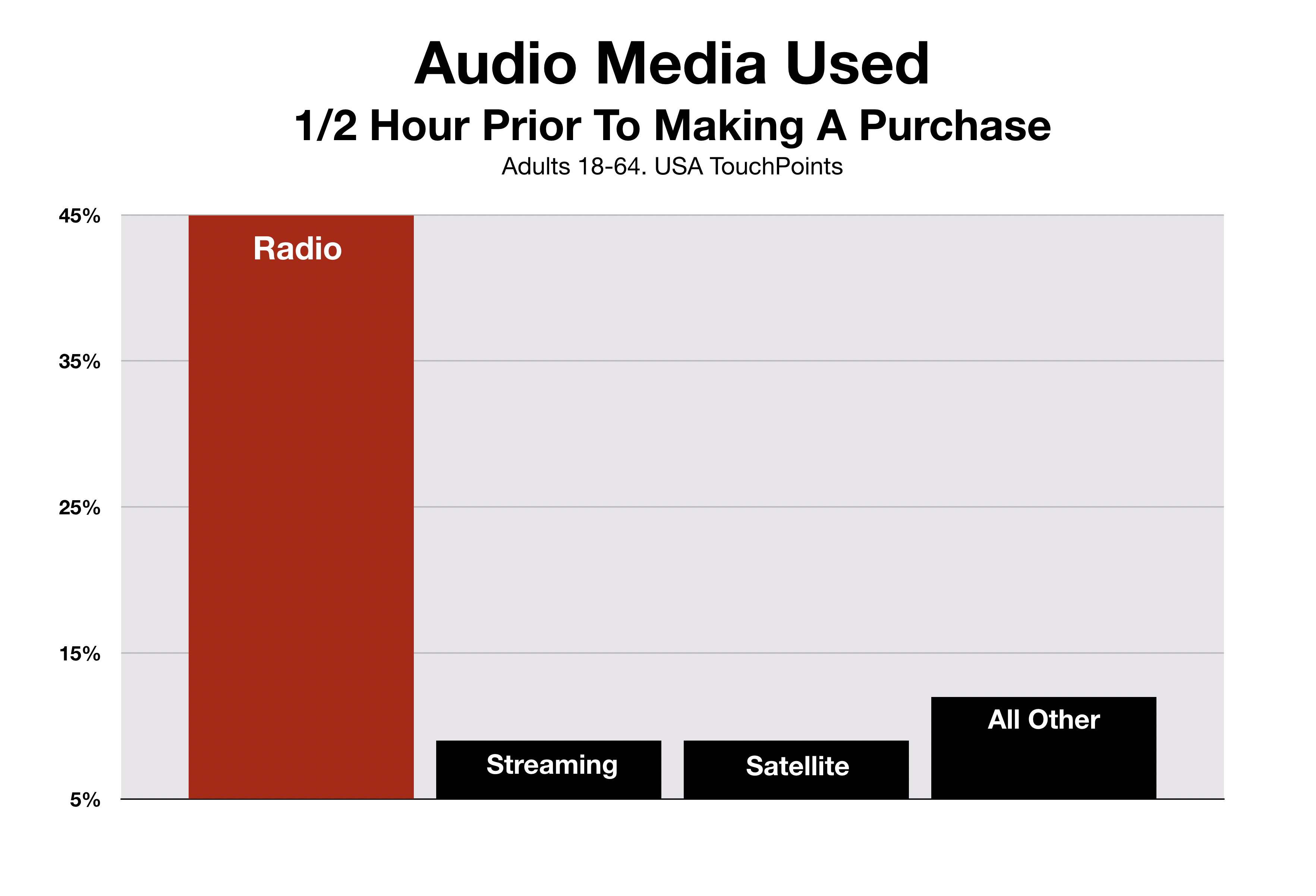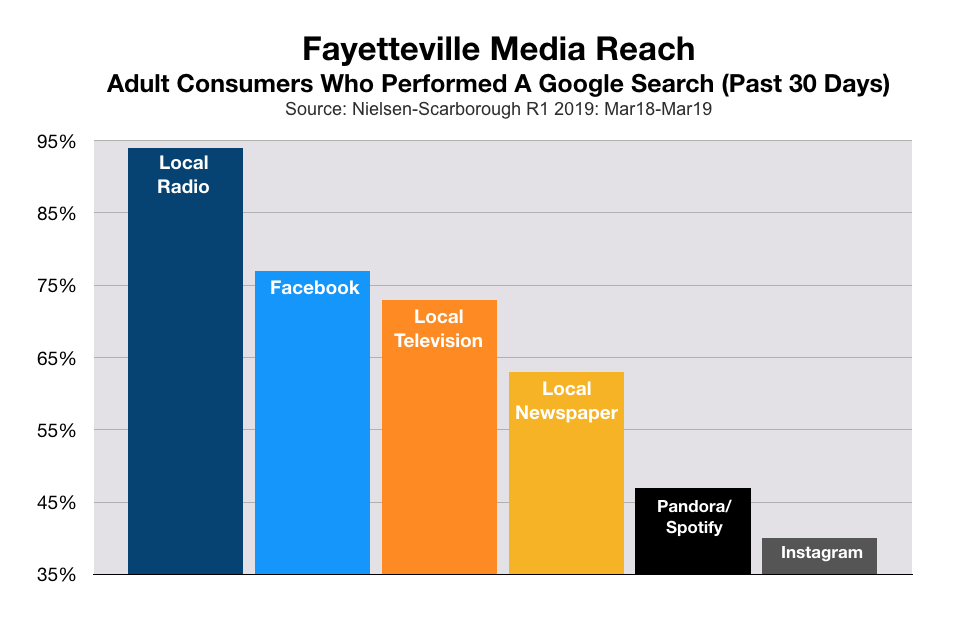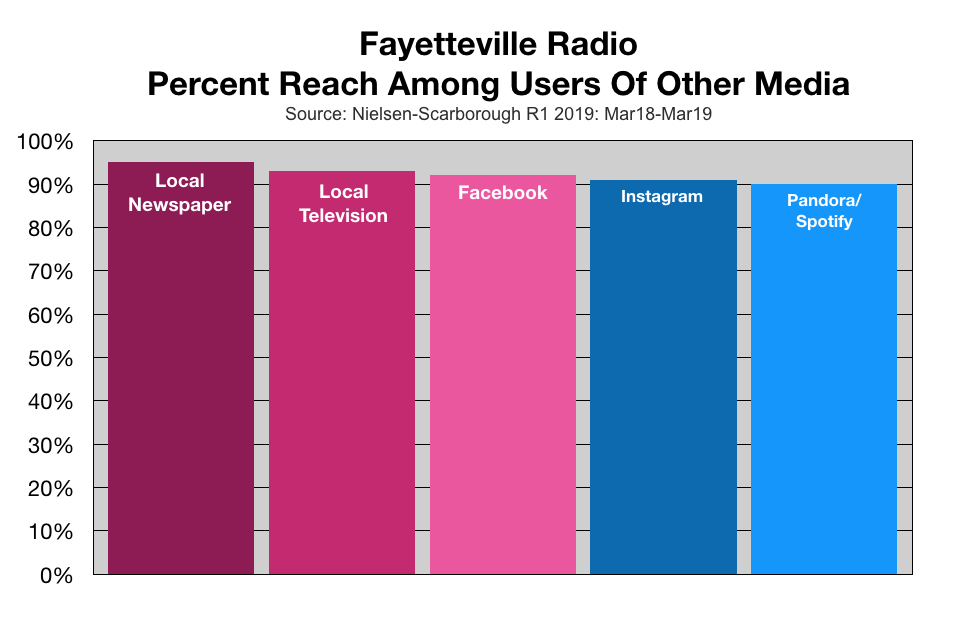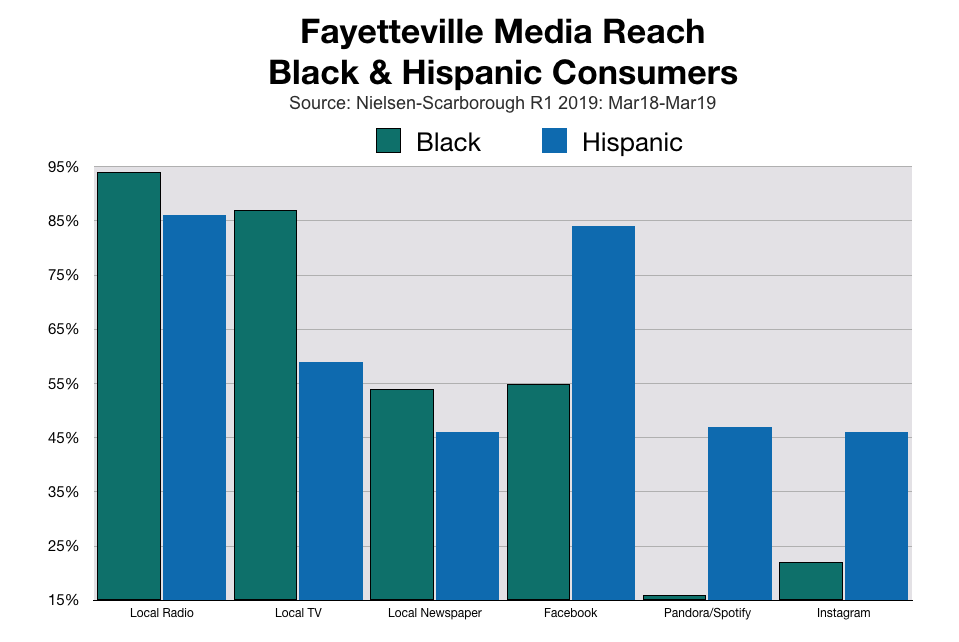 Fayetteville area small business owners have depended on radio advertising to market their goods and services since 1939. That's the year Wall Christian Ewing and Harry Layman put the first local station, WFNC, on the air.
Fayetteville area small business owners have depended on radio advertising to market their goods and services since 1939. That's the year Wall Christian Ewing and Harry Layman put the first local station, WFNC, on the air.
Today, there are 28 radio stations that serve Cumberland and Robeson counties. Each provides a unique blend of music, information, and entertainment. Some stations focus on politics or sports. Some play country music. Some play the hits. Some play classic rock. Some are on the AM dial. Some are on FM.
When Mr. Ewing and Mr. Layman began broadcasting, there were no TV stations in North Carolina. Those would come ten years later. Also, there was no social media, YouTube, Sirius/XM, Pandora, Spotify, or smartphones. Each of those would be products of a new Millenium.
With an overabundance of advertising options now available to small business owners, does advertising on Fayetteville radio still make sense? Here are five facts that serve to answer that question.
1. Fayetteville Radio Reaches More Consumers Than All Other Media
Last week, 325,231 adults tuned-in to a Fayetteville radio station. That equates to 93.9% of all consumers. No other local advertising medium has that type of reach.
Reach, according to Nielsen, is the single most potent media component of any advertising campaign. As it relates to creating sales increase, reach is more important than brand, recency, target, or context.
Regardless of what some local business owners may assume, radio's reach is dominate among all consumers, including Fayetteville's millennials.
2. Fayetteville Consumers Mostly Use Radio Outside Of Their Homes
According to Nielsen, 63.3% radio listening in Fayetteville happens while consumers are at work or in their cars.
Fayetteville radio's immense away-from-home listening can be very valuable to small business owners because cars put consumers in proximity to local retailers.
A study by USA Touchpoints, a cross-platform measurement company, studied the time-lapse between audio media use and time of purchase. Radio was, by far, used most often within one half-hour of a purchase.
3. Advertising On Fayetteville Radio Can Influence Search Engine Clicks
Each month, according to Nielsen, 242,946 Fayetteville consumers depend on a search engine results to inform purchase decisions. A study by Fleishman Hillard, a global marketing company, found that 89% of purchase decisions begin with research on sites like Google, Bing, or Yahoo.
A typical Google search, though, can return information about hundreds if not thousands of different companies, products, and services.
For instance, a Google search for plumbing companies in Fayetteville returned more than 665,000 results. So, which result are consumers most likely to click-on?
According to a study by Red C, a research-based consultancy service, 82% of respondents selected search results that contained companies they were already familiar with. This decision was made irrespective of where the result ranked on the page.
Advertising on Fayetteville radio can be critical to instilling the type of familiarity that creates valuable clicks.
Last week, for example, Fayetteville radio reached 93.% of all local, adult consumers who performed a Google search. This was far greater than were reach by all other local advertising options.
4. Advertising on Fayetteville Radio Reaches The Vast Majority of Consumers Who Use Other Media
Most Fayetteville small business owners are constrained by budget to which advertising options they can use for marketing their goods and service.
Although almost every medium can add value to a company's advertising mix, costs can limit the choice to just one or two.
Advertising on Fayetteville radio, though, has the unique ability to reach more than 90% of all consumers who utilize other media.
For example, in Fayetteville, radio reaches 95% of all consumers who read a local newspaper, and 93% of everyone who watches local TV.
5. Fayetteville Radio Has The Largest Reach Among Black and Hispanic Consumers
Black and Hispanic consumers represent a sizable portion of the Fayetteville metropolitan. According to Nielsen, these two populations comprise 42% of the adult population and will contribute $4.8 billion in spending to the local economy.
To claim a share of this very lucrative market requires Fayetteville small business owners to advertise. By any metric, local radio is the best way to reach Black and Hispanic consumers.
For instance, last week, 91% of Black and Hispanic consumers tuned-in to a Fayetteville radio station. This is considerably more than watched local TV, read a newspaper, used social media, or logged-in to a streaming audio site.


